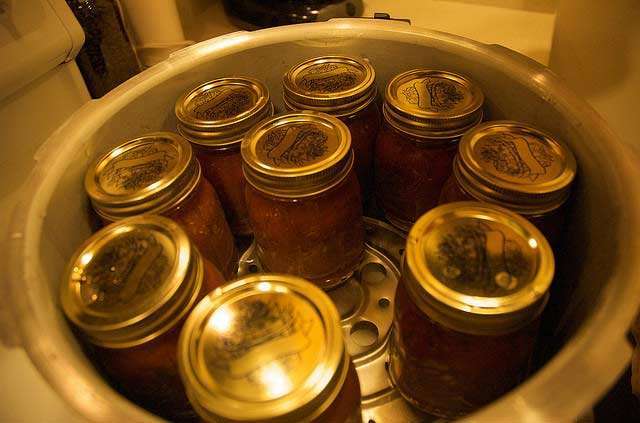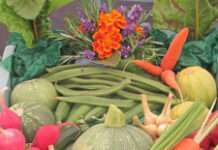K-State food scientist encourages recipes validated by research
MANHATTAN, Kan. – Gardeners are making their plans, and in some areas, vegetables and other foods are already being planted. A Kansas State University food scientist figures those are pretty good signs that food preservation season is not far away.
“Now is the time to check canning equipment and make repairs needed or replace worn items,” said Karen Blakeslee, who is also coordinator of K-State’s Rapid Response Center for food science. “Examine jars and take damaged ones out of your canning supply. Canning lids were in short supply last year, so be patient as those supplies get replenished.”
Blakeslee said that K-State Research and Extension offices across the state can check several brands of dial gauge pressure canners – including Presto, National, Maid of Honor and Magic Seal — to make sure they are working properly. This service is free.
“If you are new to canning, practice using your equipment now before you want to can food,” Blakeslee said. “Learn how the canners work with your stovetop. Use water-filled jars as substitutes to process through the canners. Also, be aware that some canners should not be used on flat, glass stovetops. Always follow the canner and stove manufacturer’s directions.”
Blakeslee also encouraged using canning recipes that have been validated by research.
“Following those recipes and directions will help insure a safely canned food,” she said. “A majority of food preservation failures occur due to user errors. And don’t forget to adjust your processing for our location’s elevation.”
Several recipes, how-to videos and publications on food preservation and canning are available online through the Rapid Response Center.
“Take the time to get educated before you start,” Blakeslee said. “This will help guide you to making safe food and reducing waste.”
Blakeslee publishes a monthly newsletter, called You Asked It!, that addresses many issues related to food science and safety. The April newsletter includes a testimonial from a consumer who survived a bout with botulism caused by improperly preserved green beans.
More information on food safety also is available online from K-State Research and Extension.
FOR PRINT PUBLICATIONS: Links used in this article
Rapid Response Center for food science, www.rrc.ksu.edu
Food preservation (Rapid Response Center), www.rrc.k-state.edu/preservation/index.html
Testimonial from botulism survivor, https://www.youtube.com/watch?v=ON8FEyVHE30
You Asked It! (newsletter), www.rrc.k-state.edu/newsletter/index.html
K-State Research and Extension food safety, https://www.ksre.k-state.edu/foodsafety
K State Research and Extension is a short name for the Kansas State University Agricultural Experiment Station and Cooperative Extension Service, a program designed to generate and distribute useful knowledge for the well being of Kansans. Supported by county, state, federal and private funds, the program has county extension offices, experiment fields, area extension offices and regional research centers statewide. Its headquarters is on the K State campus in Manhattan. For more information, visit www.ksre.ksu.edu. K-State Research and Extension is an equal opportunity provider and employer.
Story by:
Pat Melgares
785-532-1160
melgares@ksu.edu
For more information:
Karen Blakeslee
785-532-1673
kblakesl@ksu.edu





